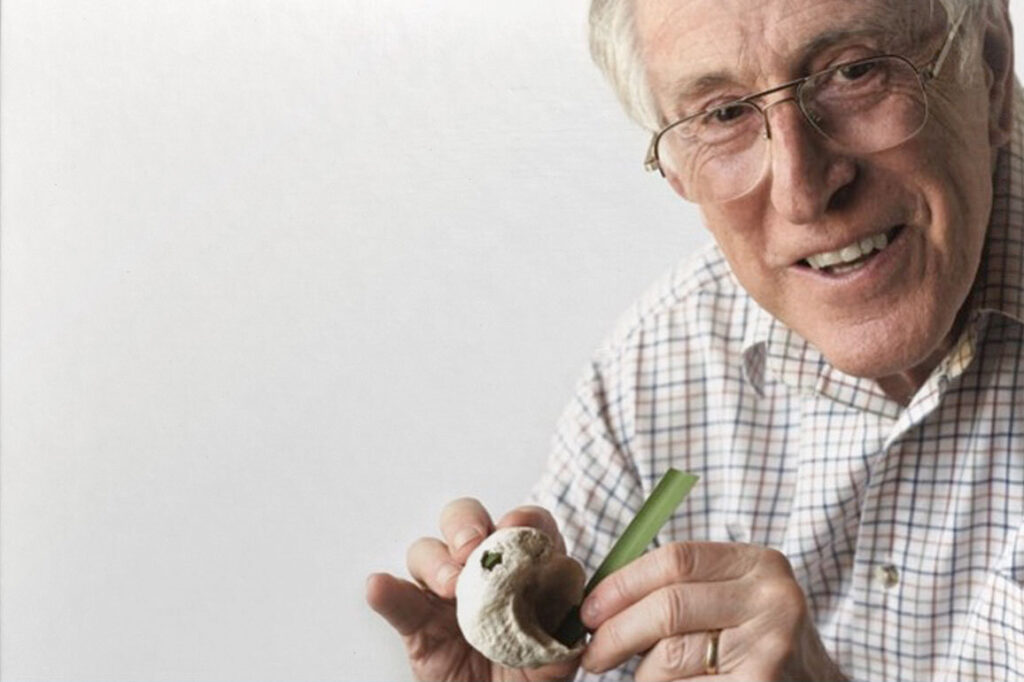The tale of the invention of the multi-channel cochlear implant

‘I want to fix ears’: Graeme Clark tells the tale of the invention of the multi-channel cochlear implant (bionic ear).
Professor Graeme Clark AC pioneered one of Australia’s greatest bioengineering achievements, the multi-channel cochlear implant, the first device to allow severely-to-profoundly deaf people to understand speech.
Witnessing his father’s battle with hearing loss, ear surgeon and neuroscientist Graeme Clark overcame challenges and opposition to bring the gift of hearing to deaf children and adults around the world when Cochlear Limited became the industrial partner.
This multi-channel implant has been the world leader for the past 40 years and has had the dominant share of the one million people now implanted in over 120 countries.
In his new book, ‘I want to fix ears: Inside the cochlear implant story’, Professor Clark recounts the story of the invention of the bionic ear, which has been a pivotal development in the fields of otolaryngology, audiology and biomedical engineering.
A FREE copy of the book I Want to Fix Ears: Inside the Cochlear Implant Story will be provided to anyone who has their hearing assessed at Alpha Hearing and is fitted with hearing devices before 25 December 2022.
You must mention Graeme Clark and this article at the time of fitting to receive the book.
“I felt a great desire to make discoveries and started with experiments in my mother’s laundry and my father’s pharmacy,” Professor Clark writes of his quest to “fix ears”, where he faced both successes and setbacks. The book describes his battle to overcome peer criticism, his tireless efforts to procure funding for his work, and his reliance on the religious and ethical principles that served as the foundation for his investigations.
Through his knowledge, skill, conviction and perseverance, Professor Clark became the first to successfully reconstruct a human sense organ. The multi-channel cochlear implant can allow deaf people to hear whispered comments, communicate with others, engage in discussions at meetings, appreciate music, and children who are born deaf can even develop spoken language.
Professor Clark’s achievements have been recognised widely by his peers and academics in Australia and worldwide. He has been made an Officer and then Companion of the Order of Australia for services to medicine and was a Senior Australian of the Year.
In 2007 he received the Zulch Prize (the most prestigious German award in basic neurological research), in 2009 the Otto Schmitt Award (for exceptional contributions to advancing the field of medical and biological engineering), in 2010 the Lister Medal (one of the most prestigious prizes in surgical science), in 2010 the Lasker-DeBakey Clinical Medical Research Award (one of the most prestigious prizes in the world), in 2015, the Russ Prize ( a bioengineering achievement in widespread use that improves the human condition), and in 2018 the Shambaugh Prize (a remarkable work in Otology and related basic research).
He is a Laureate Professor at the University of Melbourne and a member of The Graeme Clark Institute for Biomedical Engineering, which was named in his honour and seeks to transform healthcare with biomedical engineering
The book highlights the function of normal hearing and the effects of severe deafness. It narrates the stories of six cochlear implant recipients, each involved at an important stage of development of the cochlear implant, telling how the implant has given them a new life.
This book is for all those curious about the story behind a revolutionary invention, for those in the field of technology and engineering, and those interested in Professor Clark’s inspiration as a Christian scientist.
“I hope the book will help the next generation to be creative and passionate to make discoveries,” Professor Clark writes.
Article published on University of Melbourne: https://eng.unimelb.edu.au/ingenium/i-want-to-fix-ears-graeme-clark-tells-the-tale-of-the-invention-of-the-multi-channel-cochlear-implant-bionic-ear
